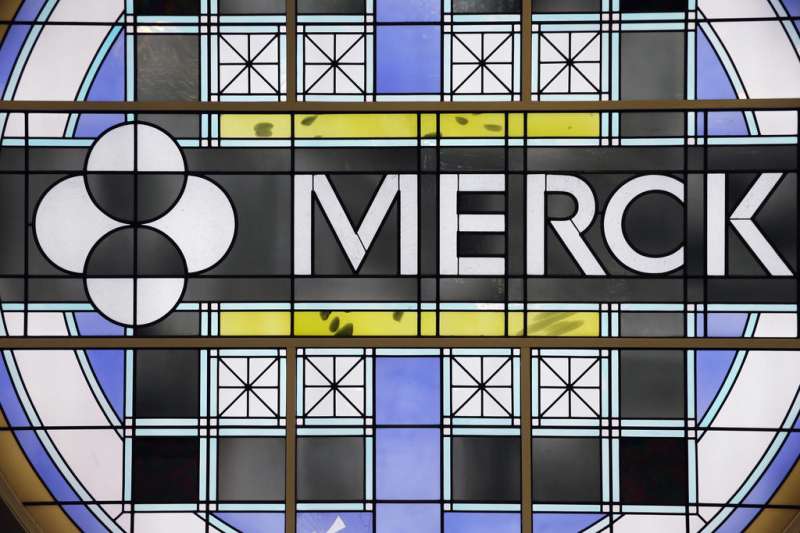Merck beats 1Q profit views with tight cost controls

Merck posted an 18 percent jump in first-quarter income, beating Wall Street expectations, as reduced spending on marketing, administration and research easily offset lower medicine sales outside the U.S.
The second-biggest U.S. drugmaker on Thursday raised its 2016 financial forecasts.
"We are off to a promising start this year," CEO Kenneth Frazier told analysts on a conference call.
Merck & Co. reported first-quarter earnings of $1.13 billion, or 40 cents per share, up from $953 million, or 33 cents per share, in 2015's first quarter.
The Kenilworth, New Jersey-based company said adjusted earnings amounted to 89 cents per share, four cents more than analysts expected.
The maker of Type 2 diabetes pill Januvia and cholesterol drugs Zetia and Vytorin is launching a new cycle of medicines for cancer and hepatitis C as brand-name or generic competition is hurting revenue from some older drugs. Those include Vytorin, allergy spray Nasonex and immune disorder drug Remicade, which saw sales drop 30 percent to $349 million.
Frazier said Merck is looking for acquisitions, but not mega-deals, to bolster its pipeline of experimental drugs, while "actively addressing" key policy issues with the government and others, particularly drug prices and the need for corporate tax reform to make U.S. drugmakers more competitive with rivals based in lower-tax countries.
Merck had cash and cash equivalents totaling $8.5 billion on hand at the end of 2015.
Merck posted revenue of $9.31 billion, just missing Street forecasts for $9.49 billion. While U.S. sales climbed 7 percent to $4.22 billion, sales overseas fell 7 percent to $5.09 billion.
Merck said revenue was reduced by 4 percent—less than in recent quarters—by the strong dollar, which reduces the value of medicine bought in local currencies.
Merck raised its 2016 profit forecast to a range of $3.65 to $3.77 per share, up from its February forecast of $3.60 to $3.75 per share. It expects revenue of $39 billion to $40.2 billion, up from $38.7 billion to $40.2 billion.
Despite those increases and the big profit jump, Merck shares fell $1.06, or 1.9 percent, to $53.75 in afternoon trading. Its shares have fallen 11 percent over the past year.
Analyst Steve Brozak, president of WBB Securities, thinks that's likely because "Wall street has been conditioned" by blowout sales numbers on some new drugs and "unsustainable" mega-mergers. Merck instead has "a real long-term strategy. Investors need to understand we are entering into a new healthcare model and Merck seems to get that merger mania Mondays aren't the answer."
Sales of prescription medicines dipped 2 percent, to $8.1billion. Merck's top franchise, Januvia and combo pill Janumet, posted combined sales of $1.41 billion, up just 1.4 percent.
Sales of Keytruda, one of the hot new immuno-oncology drugs that work by stimulating the immune system to better fight cancer cells, nearly tripled to $249 million. It's approved for lung cancer and melanoma, is being tested against more than 30 tumor types, alone and in combination with several other treatment types, and it could get approval in August for treating head and neck cancer.
Still, Credit-Suisse analyst Vamil Divan noted Bristol-Myers Squibb Co.'s rival drug, Opdivo, had first-quarter sales of $704 million.
Zepatier, approved at the end of January for treating hepatitis C, posted initial sales of $50 million as Merck continues to negotiate with insurers and government health plans to cover it for as many patients as market leaders such as Gilead Sciences Inc. blockbusters Harvoni and Sovaldi. Merck expects much-broader coverage starting in January and has priced Zepatier well below Gilead's $1,000-per-pill drugs.
Sanford Bernstein analyst Dr. Timothy Anderson maintained his "Buy" rating for Merck, but wrote to investors that concerns continue over Januvia's future amid increasing competition in diabetes drugs and Bristol-Myers's domination in lung cancer. Anderson noted Merck's fortunes could rise due its experimental drugs in four "high-value categories"—hepatitis C, immuno-oncology, Alzheimer's disease and cholesterol treatments.
Merck noted a generic version of Nasonex hit U.S. drug stores in March, earlier than expected, and antibiotic Cubicin will get U.S. generic competition in June. Cheaper copycat versions will begin cutting sales of both, and patents on some other big sellers will end soon.
Sales of veterinary medicines, such as chewable Bravecto tablets for killing fleas and ticks on drugs, were flat at $829 million.
© 2016 The Associated Press. All rights reserved.

















